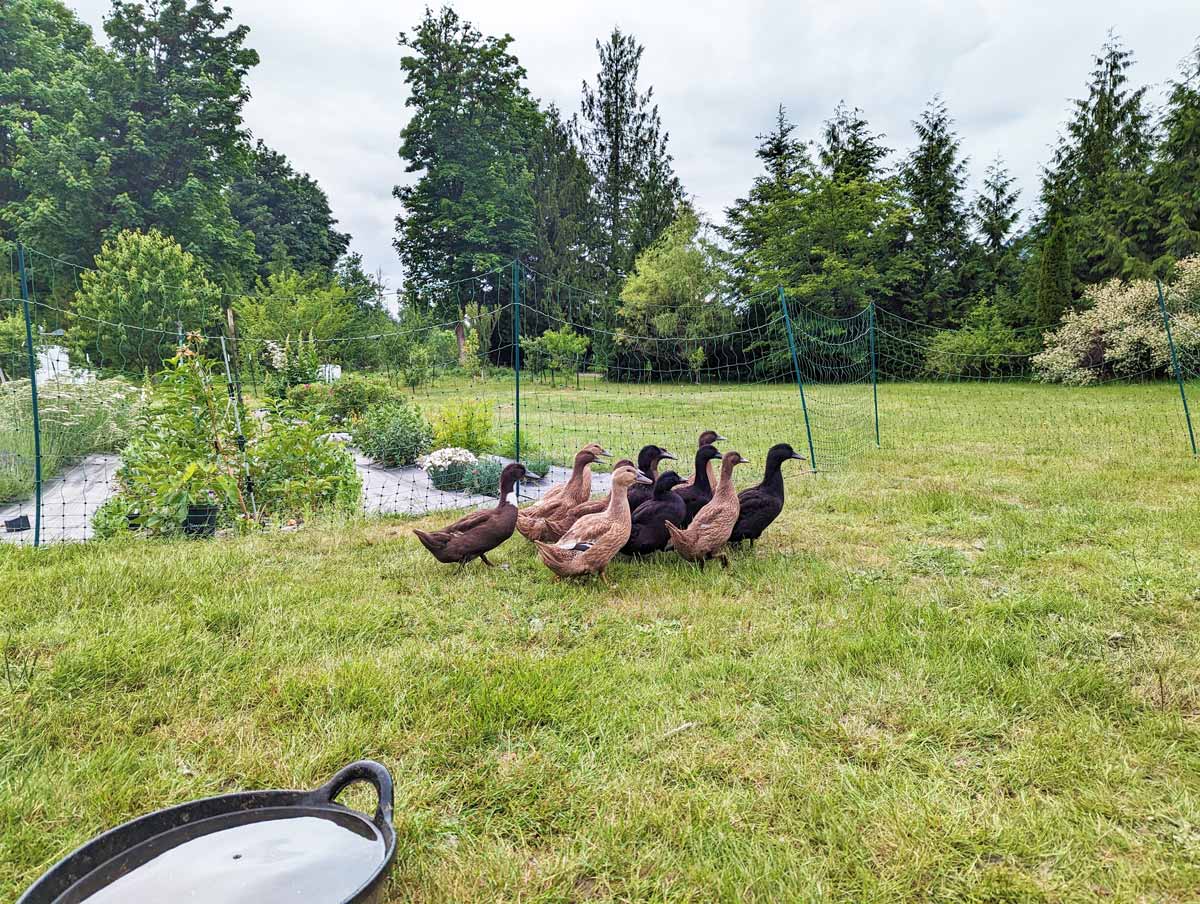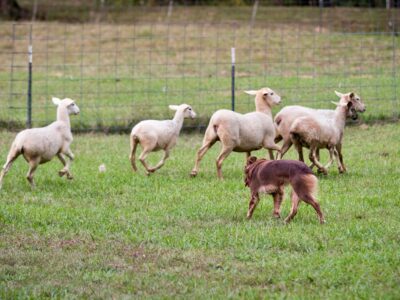If you’re like me, I had no idea about the many benefits of ducks until I began looking into raising ducks on our homestead. Dare I say that from a preparedness standpoint, ducks may be a better choice than raising backyard chickens?
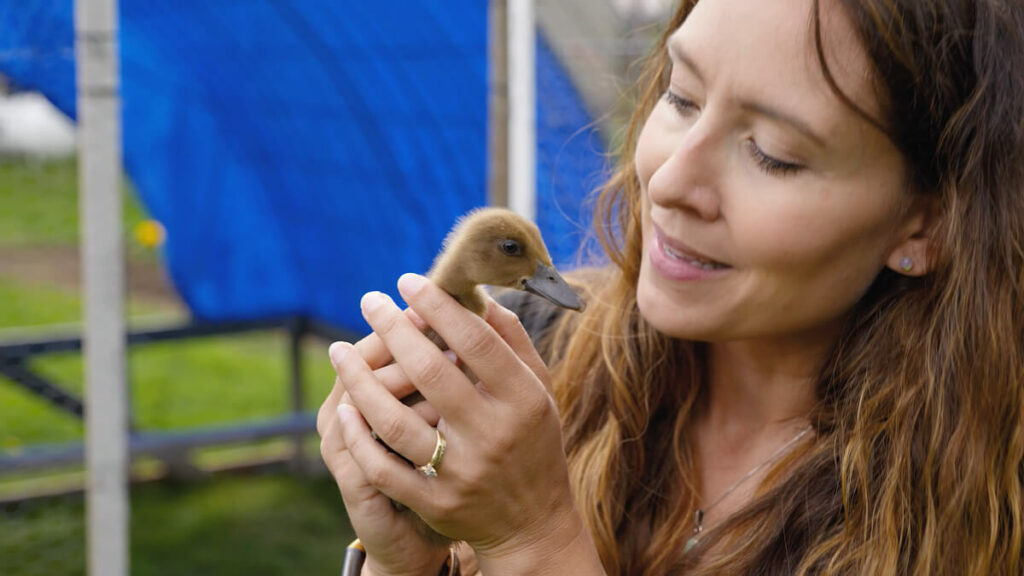
Raising ducks can be a fulfilling and rewarding endeavor, whether for eggs, meat, or simply as delightful pets. From finding the right ducklings to setting up their housing, providing a balanced diet, and addressing their unique needs, this guide has got you covered!
Table of Contents[Hide][Show]
Benefits of Raising Ducks
Raising ducks has many benefits. In fact, ducks may just be the most underused form of poultry on a homestead. When learning about new livestock to add to your farm, comparing ducks to raising chickens has a few surprising advantages.

The Hidden Cycle Keeping You Inflamed
If you’ve been feeling puffy, tired, achy, or wired-but-tired, this two-page guide will help you understand what may be happening behind the scenes — even if you’re eating “healthy.”
Download the Inflammation Flywheel Guide and learn:
- Where to start so you don’t feel overwhelmed
- The 5 most common drivers that keep inflammation switched on
- Why blood sugar swings, stress, and poor sleep feed each other
Ducks are hearty animals. During the frigid winter months here in the Pacific Northwest, you will find chickens huddled together in their coop. Ducks, on the other hand, can be found napping in the snow!
In addition to the drop in temperature, we have much less daylight during the winter, which affects the egg production of our chickens. By contrast, fully grown ducks continue to steadfastly lay eggs every single day of the year. Not only do they lay eggs daily, but they also lay eggs for up to three years longer than a chicken.
As an added bonus, ducks’ egg shells are thicker, making them less likely to freeze, and since they lay their eggs before the sun rises, you can collect them just once a day rather than checking back throughout the day to collect your chicken eggs.
Duck eggs are not only larger than chicken eggs but also offer a richer taste and creamier texture. Their higher fat content and larger yolk make them a favorite for baked goods. Aside from the benefits of their eggs, ducks can also be raised for their flavorful meat. Duck meat is tender, succulent, and known for its distinct taste.
But let’s not forget that ducks can also be enjoyable pets. With the different breeds available, these gentle and amusing animals are beautiful to watch and enjoy.
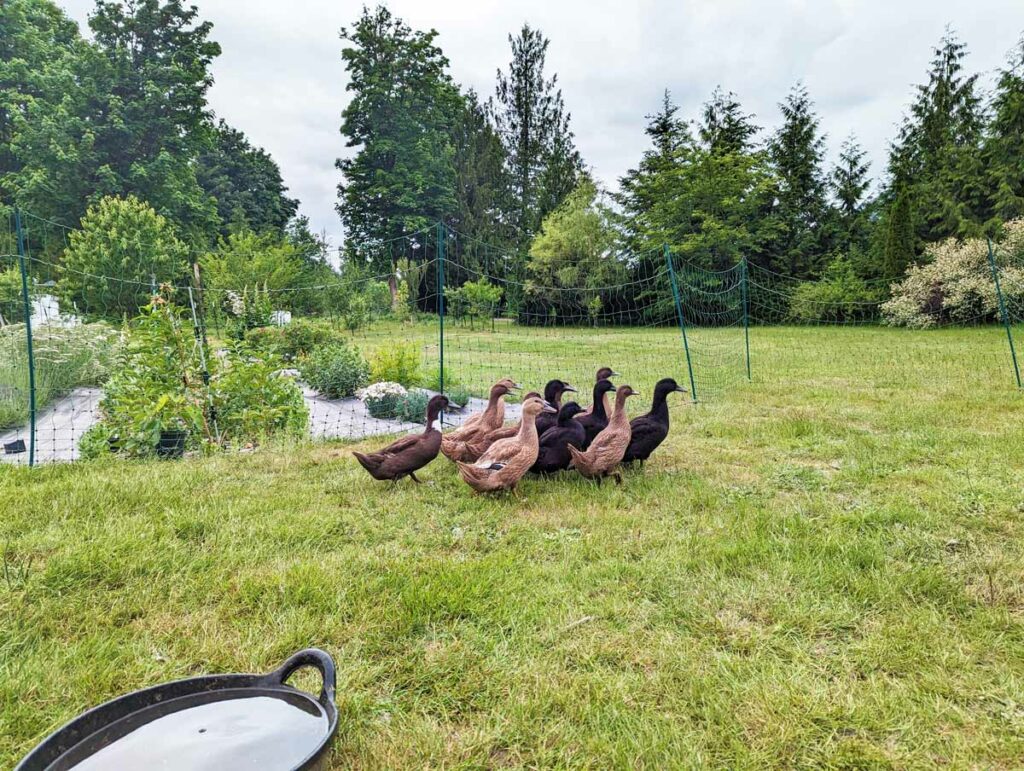
Ducks Are Social Animals
Ducks are very flock oriented. You’ll never see one duck off by itself. Where one goes, they all go. They’re super easy to herd around because they’ll all follow if you get one going in a direction. They thrive best around other ducks, swimming, napping and sharing the same habits.
I know most animals, especially herd and flock animals, feel much safer in a group. If you have one horse or one cow, they really are meant to be a herd or flock animal, and they’ll do much better if you have more than one.
Even if you have a chicken flock, you don’t want to add just one duck. If the duck is living with chickens, she’ll want to go swimming or take a nap during the day, and chickens don’t do either. Another duck or two is best for this herd since ducks are social and need to cohabitate with their own kind.
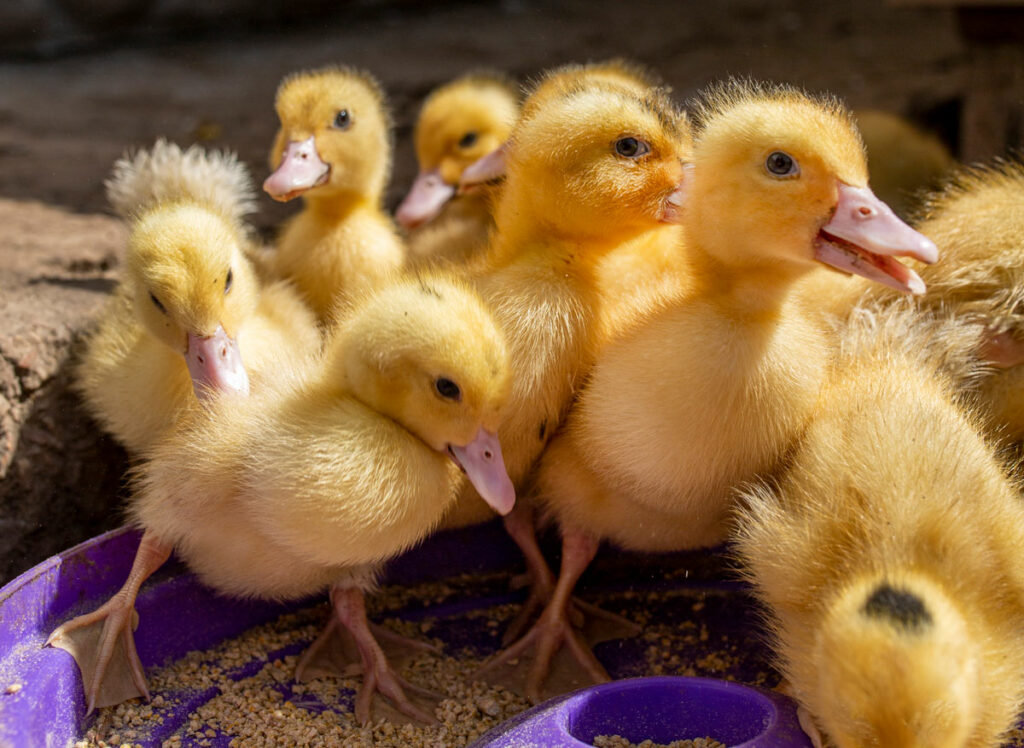
Raising Ducklings
Duckling Care
When it comes to raising baby ducks, providing them with the proper care and environment is crucial for their development. Ducklings grow rapidly during their early stages, just like baby chicks, and require a warm and secure space to thrive.
Growth Stages
During the growth stages, baby ducks go through various milestones. They start as adorable fluffballs, affectionately called ducklings, and gradually develop into independent, fully feathered ducks.
| Growth Stage | Description |
| Week 1 | Ducklings are small and require constant warmth. They are mostly dependent on their caretakers for food and water. |
| Week 2 | Feather development begins, and their downy fluff is gradually replaced by feathers. They become more active and explore their surroundings. |
| Week 3 | The ducklings’ feathers continue to grow, and they become more curious and adventurous. They start to show their unique personalities. |
| Week 4 | By this time, the ducklings are almost fully feathered and resemble miniature versions of adult ducks. They are more independent and capable of regulating their body temperature. |
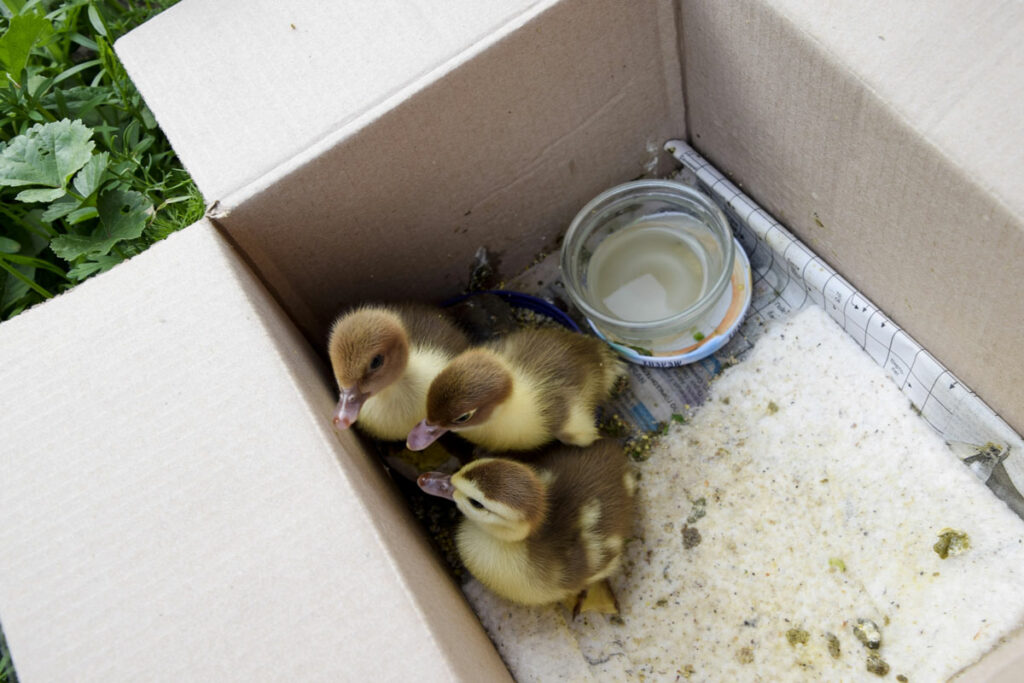
Setting Up a Brooder
In addition to providing warmth, creating a safe and comfortable shelter for the ducklings is vital. A brooder box or kiddie pool can be an ideal temporary home for the baby ducks.
- Choosing the Right Space – The first step is to select a suitable area for your brooder. A kiddie pool makes an excellent option for a brooder enclosure, as it provides ample space for the ducklings to move around. Make sure you clean and disinfect your pool before use to make a safe environment for your ducklings.
- Providing Essential Heat – Ducklings need a warm and cozy environment to thrive. Utilizing a heat lamp is a good way to regulate the brooder’s temperature. Hang the heat lamp above one corner of the brooder, making sure that the ducklings have enough space to move away from the heat if they feel too warm. The ideal temperature for baby ducks is around 90-95°F during the first week. The temperature can be gradually decreased by 5° each week thereafter.
- Creating a Bedding Haven – Setting up a comfortable bedding area for your ducklings is important. A layer of wood shavings or straw works well as bedding material. Make sure to spread it evenly across the brooder floor, providing a soft, cushioned surface for the ducklings to rest and walk on.
- Essential Items Within Reach – It’s important to have essential items readily available in the brooder for your ducklings’ well-being. A water container, feeder, and a section lined with newspaper for them to do their business separate from where they eat and drink. Keeping these items within reach will help create a convenient and organized setup for both you and the ducklings.
Where to Find Ducklings
Finding the perfect ducklings is the first step if you want to start raising ducks. Fortunately, there are a few reliable places to find healthy and well-cared-for ducklings.
Whether you choose to get your ducklings from a feed store, a specialized farm, or mail order make sure to inquire about the breed and the conditions the ducklings were raised. This will help you pick the right ducklings for your specific needs and provide them with the best environment to thrive and grow.
- Mail Order – Living in the Pacific Northwest, purchasing a bunch of rain ducks is perfect because they love the rain. Ducklings of various breeds are easily purchased through Metzer Farms out of California with free shipping on all bird orders. Hoovers Hatchery, based in Iowa, is another great place to buy ducklings, with a hundred varieties to choose from.
- Local Feed Store – Many feed stores carry a selection of poultry, including ducklings. These stores often work closely with local farms and suppliers to ensure the availability of top-quality ducklings. Visit your nearest feed store and inquire about their stock of ducklings. The employees are usually knowledgeable and can provide valuable advice on duckling care.
- Specialized Farms – Specialized farms that focus on breeding and raising waterfowl are another excellent source for finding ducklings. These farms have extensive experience in handling and caring for ducks, ensuring that you’ll find healthy and well-socialized ducklings. Look online for reputable duck farms in your area, or ask for recommendations from local farmers or poultry enthusiasts.
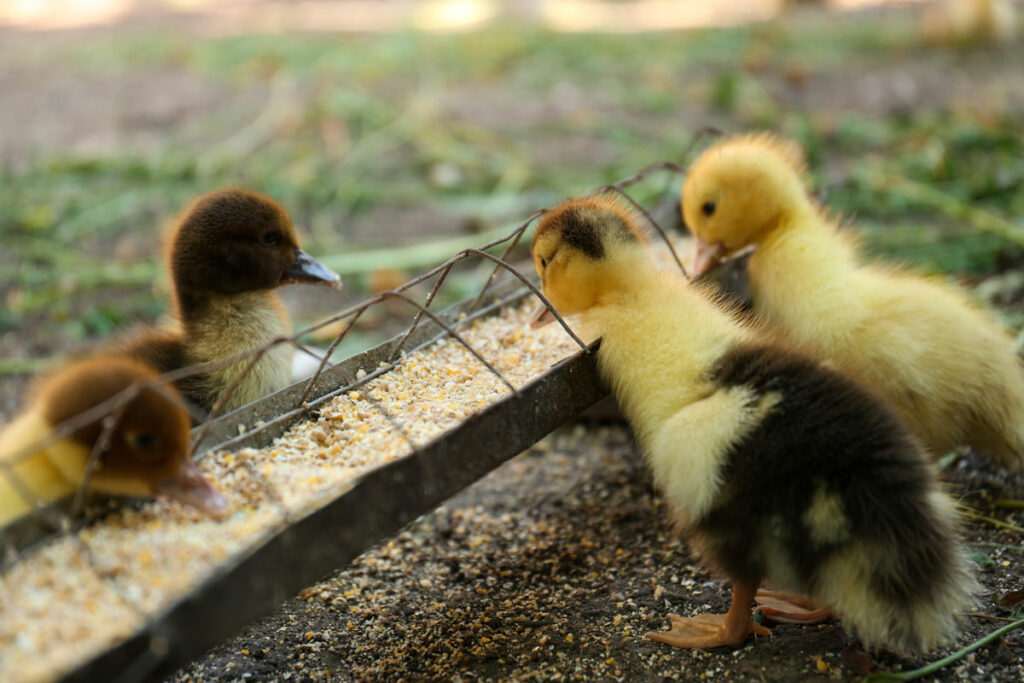
Feed and Water Requirements
- Food – Ducks require a balanced and nutritious diet to thrive. A commercial duck feed formulated specifically for their needs is an excellent choice. You can find this feed at local feed stores or farms that cater to poultry needs. Choose a feed appropriate for your ducks’ age and breed.
- Water to Drink – Changing and refilling the water dish daily is crucial to maintain cleanliness and prevent the growth of harmful bacteria. Ducks are susceptible to bacterial infections, and keeping their water source clean is vital for their health. Dumping out the old water, rinsing the dish thoroughly, and refilling it with fresh, clean water daily is a good rule of thumb.
- Water to Bath In – Ducks use water for drinking, cleaning and preening their feathers. A shallow dish of water is ideal for ducks to dip their heads in, keeping their eyes and beaks clean and allowing them to engage in their natural behaviors. A large tub of water or kiddie pool keeps these herd animals happy as they splash around, preening themselves with their own kind. Ducks love water and are fun to watch as they frolic in it!
Pro-Tip – Ducks are messy creatures whose water can quickly become soiled. Regularly cleaning the water dish and swimming area and keeping clean water available daily will help prevent illness and keep your ducks healthy.
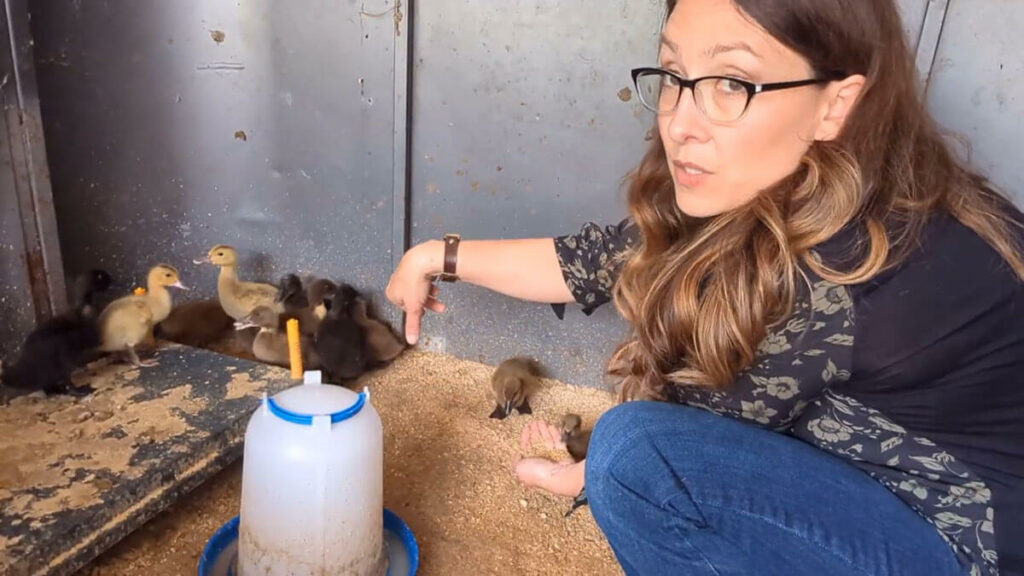
Housing
When it comes to providing suitable housing for your ducks, there are a few key factors to consider. These guidelines will help you design an adequate shelter to promote good health and provide safety from predators and extreme weather conditions.
| Key Requirements for Ducks Housing | Considerations |
| Sufficient space | Provide at least 5 square feet per duck |
| Proper drainage | Use raised floors or bedding materials to maintain cleanliness |
| Adequate ventilation | Ensure proper airflow and temperature regulation |
| Secure entrances and exits | Prevent access to predators |
| Comfortable sleeping area | Incorporate nesting boxes or suitable surfaces for resting |
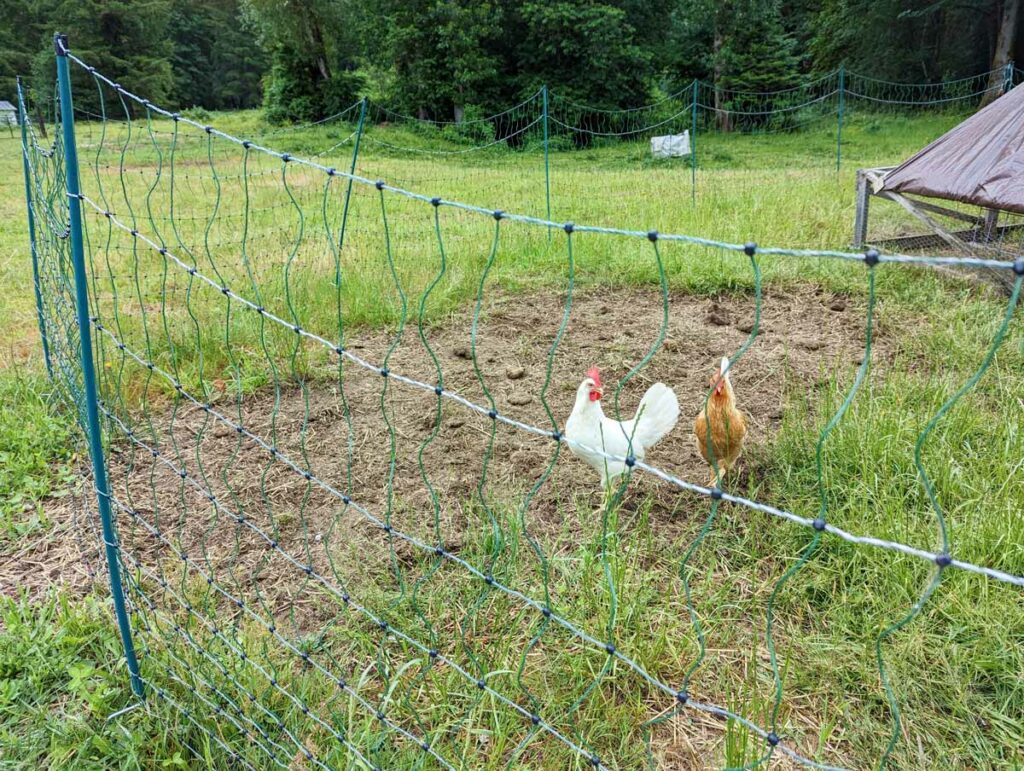
Fencing
While mallards and other wild duck breeds can fly, you do not need to clip your duck’s wings because domesticated ducks have been breed not to fly. Younger ducks may get airborne for a few feet, but a two-foot fence is sufficient to contain them.
Ducks love to roam and forage, and having access to a pasture allows them to engage in natural behaviors. It provides them with opportunities to find insects, plants, and other natural food sources, contributing to their diet and overall health.
Although domestic ducks won’t fly away, adequate fencing is crucial in keeping them from wandering into unsafe areas and keeping predators at bay. When it comes to choosing the right fencing for your ducks, there are a few options to consider.
- Chicken Wire – One popular choice is chicken wire, which is affordable, easy to install, and provides good visibility for both you and your ducks. However, it’s important to keep in mind that chicken wire may not be strong enough to keep out determined predators, such as raccoons or foxes.
- Hardware Cloth – Hardware cloth is made of galvanized steel and offers superior protection against predators. Its smaller mesh size prevents small animals from squeezing through, ensuring that your ducks remain safe.
- Electric Fencing – If you have a larger area available, my top choice is electric fence netting. This technique uses a mild electric shock to deter predators and keep your ducks safe. While it requires additional setup and maintenance, electric fencing can effectively protect your ducks, especially in areas with a higher predator presence.
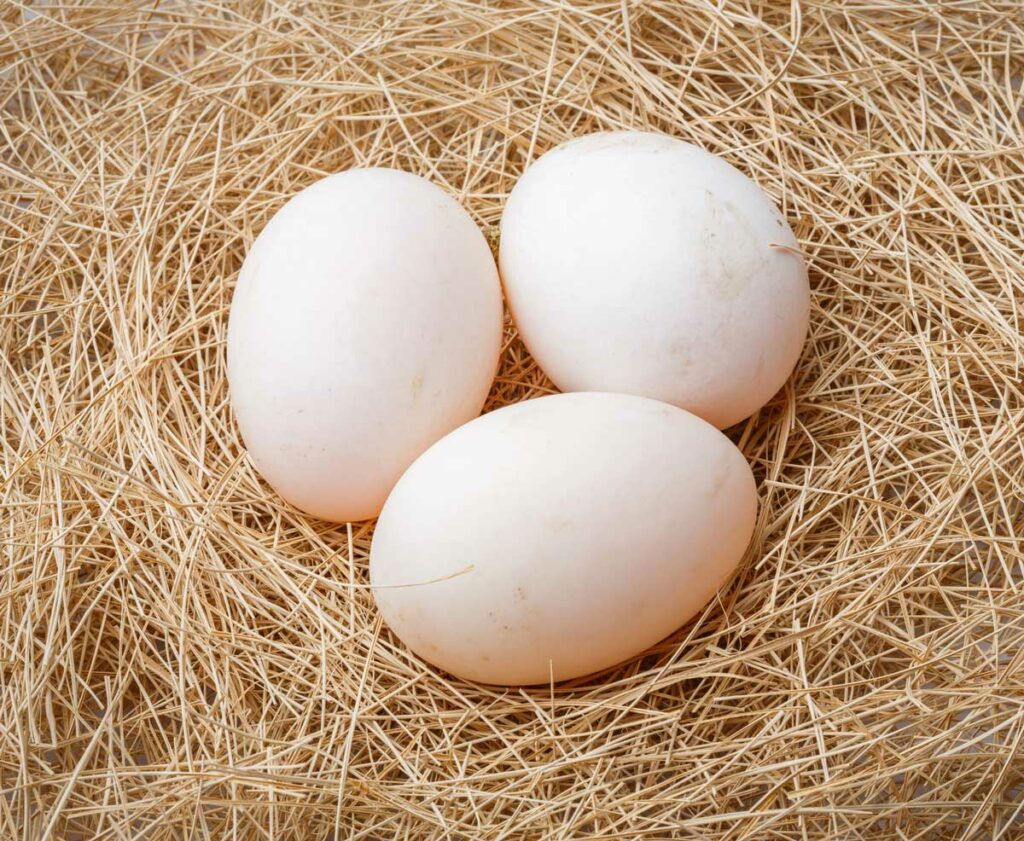
Duck Eggs
Duck eggs are larger in size and richer in flavor than chicken eggs. These eggs have a larger yolk with a higher fat content and a creamier, less watery taste than chicken eggs. Duck eggs ounce for ounce contain more Omega-3, vitamin D, folate, Iron and choline than chicken eggs.
Certain breeds of Ducks produce larger and more eggs per year than other breeds. If you want ducks for egg production and a certain color of eggs (yes, my friends, they come in a variety of colors according to the species), here are a few examples of breeds with the color and amount of eggs they lay on average each year. Most breeds start laying eggs between five and six months old and will lay eggs for four to seven years, even through the winter months.
- Pekin, Saxony, and Silver Appleyard – These varieties produce white eggs and lay 100-150 eggs annually on average.
- Ancona, Magpie, Mallard and Runner – These breeds produce 100-150 bluish-green colored eggs annually.
- Cayugas – This breed lays a whopping 130-180 gray or black-colored eggs on average per year.
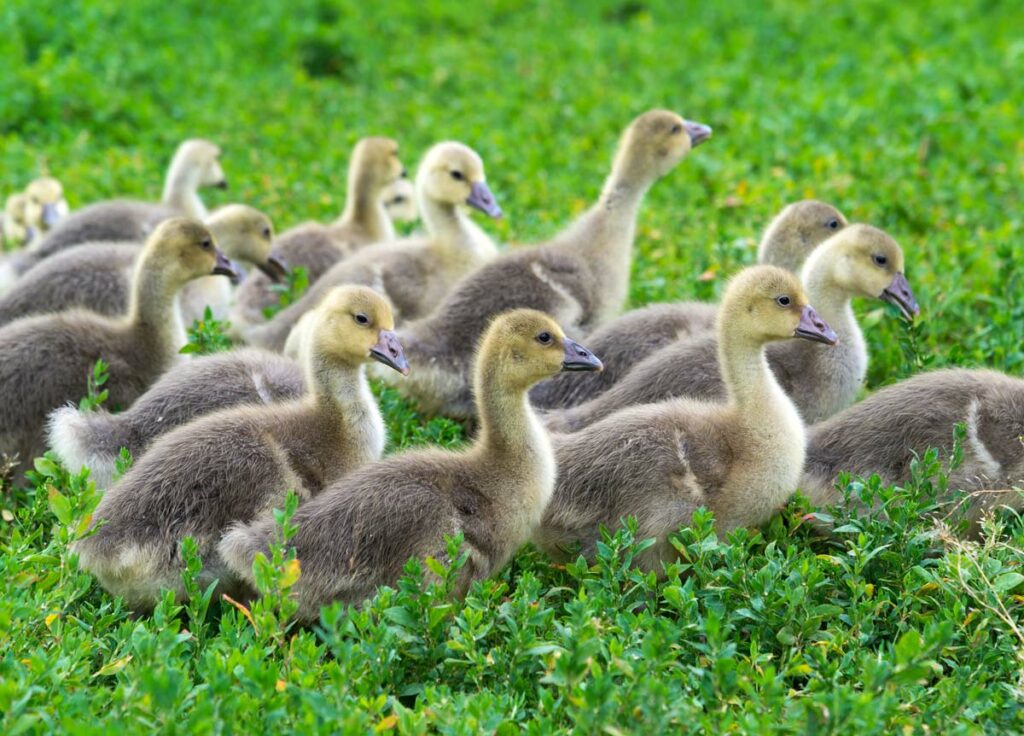
Integrating New Ducks Into the Flock
When we started raising chickens years ago, we had so much to learn when integrating new chicks into our existing flock. Ducks accept and welcome new ducks into the herd; they don’t seem to have a strict pecking order like chickens do.
You just need to watch out for the smaller ducklings when they swim together so they don’t get trampled in the water by the bigger ducks. They love swimming together and hang out in a herd, so you have to keep an eye on the ducklings.
Raising ducks has been great for several reasons on our homestead. I found out that I have a food sensitivity to chicken eggs, so having duck eggs has been great for me personally. I also really like the work the ducks do controlling prolific slugs here in the wet Pacific Northwest.
FAQ
Can you raise ducks and chickens together?
Yes, chickens and ducks can cohabitate, eat the same food, and enjoy the same treats.
Do ducks need a coop?
Although ducks do not need roosting bars or nesting boxes like chickens, they need a duck house to keep them from roaming and laying eggs in random places.
Do ducks need a pond?
No, but ducks need constant access to clean water deep enough to dunk their heads.
Are ducks messy?
Yes. Ducks need to bathe regularly to keep their feathers healthy and nostrils clean. They are known to splash around and make messes. If they find a water source, like where your gutters drain or your air conditioning drips, they’ll turn it into a mud puddle.
Can ducks free range?
Yes. Ducks love to forage, and having access to a pasture allows them to engage in natural behaviors. However, ducks need protection from predators, so adequate fencing is necessary.
Are ducks loud?
Male ducks do not quack, and certain breeds such as Muscovy and the Campbell tend to be quieter than other breeds.
Resources
- Where to Find Lisa Steele
- Made From Scratch Life
Other Posts You May Enjoy
- Most Underused Form of Poultry for Income & Sustainability on the Homestead
- Your Livestock Questions Answered
- Electric Fence Netting (Everything You Need to Know)
- Raising Backyard Chickens
- Integrating New Chicks to Existing Flocks Q&A Chicken Raising
- Storing & Preserving Eggs (Farm Fresh Eggs Primer)
- How to Preserve Meat, Eggs & Dairy
